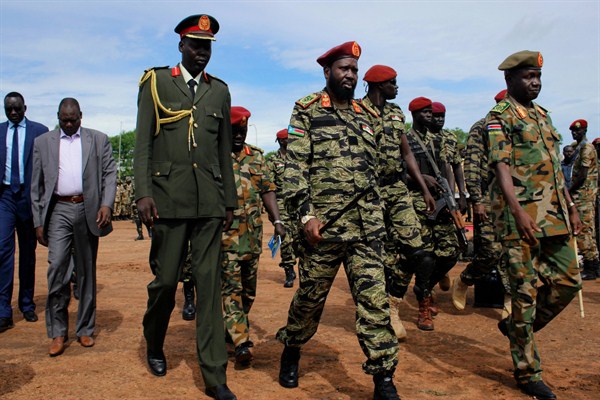In late April, Stephen Dhieu Dau, South Sudan’s finance minister, visited his counterpart in Turkey to sign a trade and cooperation agreement. As the young country’s civil war drags on and relations with the U.S. and other traditional backers remain tense, South Sudan’s officials are pursuing ties with new diplomatic partners. In an email interview, Brian Adeba, associate director of policy at the Enough Project, describes that outreach and explains why the U.S. is still in a position to exert pressure on South Sudan’s government.
WPR: How have relations between South Sudan and its traditional backers, especially the United States, evolved as the civil war has dragged on?
Adeba: Historically, South Sudan’s strongest supporter among its traditional backers was the United States, which invested a lot of diplomatic effort to bring about the birth of the world’s most recently independent country. For years, South Sudan enjoyed strong bipartisan support among policymakers in the U.S. This support started under former President George W. Bush, who reportedly directed staff on his second day in office to look into ways to resolve the conflict in what was then a unified Sudan.

